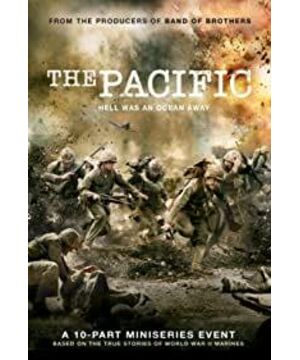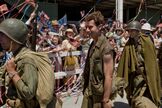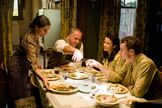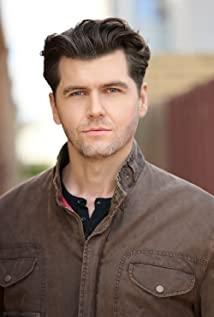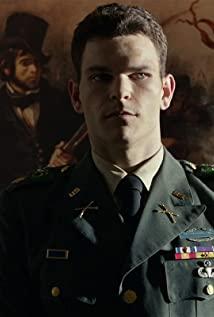War destroyed that generation, not only youth, but all, and the trauma left to future generations is even more untold. Directors usually need to balance historical facts and humanity when facing historical war topics. For Hollywood blockbusters pursuing the box office, historical facts are thrilling war scenes, and humanity is a love broken up by war. Movies that emphasize the historical facts of war seem to be more popular because of their strange pictures. For example, the former "Brothers" has become a classic because it reproduced several classic battles in the European battlefields of World War II through a macro narrative. It reflects the trauma of war to human nature. The film always focuses on veterans who are mentally disordered or degraded in life, and leads to the path of niche literature and art. Even the 82nd Oscar-winning work "The Hurt Locker" is facing an embarrassing situation of mixed reputation.
Thanks to Spielberg and Tom Hanks for re-launching the "Pacific" nine years after the epic "Brothers", so that we can once again review the most tragic episodes of World War II through time and space reconstruction. In fact, judging from a simple title, we can already find that "Pacific" and "Brothers" have a completely different style. It pays more attention to personal emotions on the battlefield. In the first episode, the close-up shots often stay for a long time. On the faces of several key figures, the subsequent narrative also emphasizes the changes that their experience on the battlefield has brought to their minds and bodies. The director makes good use of these techniques, while portraying the characters' hearts while taking into account the depiction of the battlefield. Although it is not a large scene with rich colors, it is even more shocking with people.
ps. Finally, the Canadian actress Carole Davinas, who talked about the opening two sentences, has matured her acting skills in the "Battle of Paschel", but she has not acted much and has not had the opportunity to show her talents in Hollywood. The later episodes of "Pacific" saw her more exciting performances. I guess there must be a love story between her character and Robert that everyone will remember.
pps. Some people may think that Robert (the first actor who appears in the opening credits, Bob for short) may not be able to play after the dialogue with Vera at the door of the church. I also thought that at the beginning, because Vera was just a polite sentence of Ok. However, after carefully observing the picture of the dialogue, we can still see some information beyond the words:
1. Vera interrupted Robert, smiled and nodded, saying that I know who you are, and smiled again after speaking;
2. Cold scene I made a dispensable explanation: I was going to the supermarket, but I came to church again;
3. Vera watched Robert's eyes;
4. Vera's footsteps after leaving.
Personal opinion ~
========= Update the second episode ========
According to the budget, each episode of "Pacific" is worth one "Hurt Hurt" (or even more), but The most intense conflict we saw in the second episode was just a cold gun by the Japanese army, a round of daytime bombing, and a night raid. The biggest scene was the US fleet looming in the end of the film. The deaths in the film are all downplayed, so they are not as worrying as the scenes in some thriller movies.
Of course, I am not expecting the shocking war scenes. For short dramas with war themes, this is also a condition for it to rise to the epic level. However, a new perspective requires enough film to accumulate energy, and a degree of relaxation is effective. The skill of controlling the emotions of the audience, I believe that the fierce storm comes in the last few episodes, and we may remember this movie for a long time. Suddenly I remembered the ending of "We were Warriors" starring Mel Gibson. Under such a strong emotional impact, no matter how strong people are, they can't stand to cry-and the second time I saw "Pacific" When I started "Sketch", I had already experienced this feeling.
In addition to the battlefield, the short second episode has three episodes, still focusing on the physical and mental changes of the three protagonists. In the first paragraph, Robert and his comrades took advantage of the air raid and intercepted a batch of military supplies. Normal food became a precious delicacy on the battlefield. However, the most painful thing for him was that he was not blessed afterwards.
Eugene still asked his father to check whether his heart had recovered. His reluctance reproduced Stephen Klein’s Henry’s stubbornness. Eugene’s father did not shed tears silently like Henry’s mother, but talked about his views on the war. Understanding-For all parents, there is nothing more fearful than war. They instinctively want to protect their children. Eugene’s father’s words may have interpreted the horror of war to the extreme, but part of the tragedy in human fate stems from its inability to be persuaded. They only believe in their own personal experience, and sometimes it’s time to wait until they realize it. It's late.
John was promoted because of his outstanding performance in the blocking battle-but he understands that many of his dead comrades, especially his friends, were not without him, but he was lucky in the choice of "run left or run right" Stay alive. Those who are unlucky have either ran the wrong route or chose the wrong time. Just a difference of thought will be forever separated by the boundary of life and death.
Finally, let’s talk about Robert. He started to write to Vera while cleaning the battlefield. Maybe it was the first one, maybe they could meet without the second one. The words that the mother ship attendant told the returning soldiers were a bit ridiculous and contrived, but in terms of handling methods, it might as well be understood as a foreshadowing. The situation after their return is still unknown. After all, we can still hear the protests of many veterans who were disappointed after World War II.
========== EP 3 ===========
From the life and death battlefield on the small island to the beautiful Australia, the war seems to have been thrown out of the sky. The only conflict was that the Australian officer hit John with a punch, and John returned with a punch, two punches in total. The gun also fired twice. It was a soldier hitting a cow, but Robert stopped it. The military police opened their eyes and closed their eyes. Most of the soldiers ran out for fun, but those who slept obediently were happily teased.
Suddenly remembered Mahler's score. Everything performed here is like a cheerful and lively waltz, played after the audience had just experienced the sad funeral march, the appearance of Stella was the "light in heaven". However, this weak peace is only intermingled for a short time in those ruthless years, and the current warmth will only make the ensuing suffering even more unbearable.
John's vomiting happened after hearing a word from the chief. However, his nausea and the commander's words are not just a coincidence. This is another finishing touch for the director. Robert Lecky relies mainly on physical performance this time. His task is to work with Stella to firmly grasp the emotions of the audience. However, John's task is to impress the audience with his eyes. Several sets of shots of John's eyes are the most brilliant images in this episode.
John is going back to China, and he is going back to sell war bonds. War is only a theme for American national debt. Before the government officially declared war, several major US arms dealers had already made a good profit by selling aircraft to Japan and selling ammunition to Germany. Now that the warrior army is half alive and dead, the wheels of capitalism are seizing a theme on the other side of the earth and turning (earning) happily-this may have been noticed by John subconsciously. In John's dim teary eyes, there was no relief from the return, except for helplessness, only sorrow. This almost desperate look even surpassed the element of unbearable departure. Remember what Eugene’s father said in the last episode? John's eyes are undergoing this terrible transformation.
At this time, I remembered that on the main street in the opening movie, a kid asked John: "Yanks, how many japs did you kill?" John looked around in confusion, speechless. This shot left a deep impression on me in the trailer, and now after the context is clear, the director's sharp criticism has emerged. Some people say that Pearl Harbor is a conspiracy, some say that the United States should not be involved in the war, and some say that the war could have ended in 43 years-but everything is just a vain assumption. The youth and lives of that generation have been lost.
The last is not the least important. In the last episode, there was a misunderstanding. It turned out that they did not return to China, but just took a break in Australia. Such a result may be a cup for Robert and Vera, and so far, Vera has become the melancholy in Robert's memory, and there is no chance to even think of it.
========EP4=========
There is still no heart-stirring battle.
The documentary title originally made people expect to see how American bombers dropped 400 tons of bombs on a small projectile island. However, after the opening of the sketch, there was only one skirmish, and then everyone saw Japan left behind by the previous bombing. Most of the defeated soldiers were dead, and one or two of them lost their combat power completely, and they could only lie on the ground and stare at the soldiers. What kind of iron and blood is needed if you can still kill these people who are harmless to yourself?
"Hell is only separated by an ocean", this is a sentence in the "Pacific" trailer. Compared with the actual descriptions of battlefields in "History of the Decline and Fall of the Japanese Empire", the "hell" in the fourth episode of "Pacific" has only constant rainstorms as the background, and Gibson, the killer of the film, is the character. At the end of the film, I misunderstood his phrase "I envied him" as "I ate him". If this is the case, the plot will only be more shocking, and Robert's surprised expression will also be explained more satisfactorily. Importantly, such a thing did happen in the hellish Pacific island battlefield.
Robert is sentimental and righteous, and he always loves to put the two into action, and at the same time seeks to maintain an independent personality in a constantly changing environment. As a result, he commits the taboo of "workplace" and is often worn with small shoes. Robert's temper is comparable to that of William James, the master of "The Hurt Locker", but the soldiers in "Pacific" are all mortals like you and me. There is no such thing as Zhang Fei's anger to Nagasaka. The martial arts of Zhao Yun brave thousands of troops, just as the mental disorder Gibson said in the last rant, a sniper can easily overtake Robert. But like the "drug addiction" in "The Hurt Locker", he asked to return to the battlefield early, as if he had lost his soul there.
In the process of narrating the grand event, it is not easy to insert an inner monologue, and the director does not seem to intend to do so with a few flashback clips, so I have no way of knowing whether Robert has forgotten the Australian affair. It's all done. This episode spans two years, and there is no news of what happened in Robert's hometown. Robert still insists on writing to her, once at the beginning of this episode and once in the middle; but Vera is like a balloon floating in the air (refer to the special balloon at the end of the previous episode). How is she doing? Did she write back to Robert? This is the biggest suspense that supports me, and she is also the last line of defense that supports Robert's sanity.
======== EP5 ========
Today I suddenly thought, is the title pacific a pun? Although the protagonists do not subordinate to any doctrines, do not understand the abacus in the three giants of the Allied Forces, and at the same time are deeply trapped in the battlefield, they are still experimental objects put on the front line by the director. The helplessness in the charge and the helplessness in the face of the future are the director's intentions, so this pacific may be understood as an adjective of pacifist.
Realism and idealism collided in the first half of the fifth episode, and the images of the protagonists became more and more full-John is on the same footing, fame and wealth are harvested, but he cannot tolerate the request of others to recall the battlefield; Robert returns to the army What he brought back was actually a bag of books. By the way, he opened a loan business in the barracks; Eugene’s first step into the front line, the child’s face was still a mixture of integrity and simplicity. Not only did he not drink or drink in the trenches, but also On the beach, they grabbed the lighters that friends prepared to grill the scylla crabs—they looked out of place and out of place, just like the characters painted by Munch, trying to break free from the shackles of the background, and confided in the foreground.
The battlefield in the second half was the fiercest battle in the five episodes so far. We finally saw that the director did not dare to shoot the big scene, but made it unique if he wanted to. Although the subject matter of the beach battle is similar to the "big soldier", the camera on the battlefield seems to have changed a new set of techniques for the rhythm and framing of the camera. The scene of landing on the ship and exiting the cabin simulates the perspective of the baby before and after the birth. The subsequent shooting no longer uses the jittery lens to enhance the pseudo-documentary style regardless of the three-seven-two-one, but only uses it when shooting close-up shots of soldiers in combat. The soldiers who died on the front line seemed to be piled up more densely, and they were not all ketchup, only one or two of them were flushed red. These changes may make our hearts numb by countless wars feel the horror of war again.
============EP6============
Nada y pues nada y nada y pues nada
just read "A Bright and Clean Place", the end is like a spell The babble. Nada here means nothingness, and the theme of nothingness is everywhere in Hemingway's novels. After returning from Spain, his soul has been lost on the battlefield. He has completely changed a person. He said that only by experiencing the scenes of the edge of life and death can we understand how nihilistic our lives are. He destroyed Henry's women and children with a pen, castrated Jack, let San Diego go home empty-handed, and killed Robert... until in the end, Hemingway pulled the trigger with his toe and ended his life.
This flat charge in the sixth episode of "Pacific" is perhaps the most realistic battlefield I have ever seen. I don't want to recall those terrible scenes anymore. I only remember the silence at the moment when the gunfire stopped. It seemed that I suddenly understood the emptiness that haunts Hemingway's heart, and I suddenly felt that the soldiers who were alive were even more pitiful than the dead.
With the advancement of technology, cameras no longer simply use small tricks to achieve the purpose of restoring the reality of the battlefield. The director boldly increased the number of panoramic shots under strong lighting, and the physical effects of the shells were more realistic. Whether the dust splashed on the ground or the explosion effect after hitting the target, it was like actual combat-which further improved the audience The test of psychological endurance. This episode is undoubtedly extremely bloody, and more bloody scenes will come in later episodes.
At this time, I would think, when technology develops to a certain level, when we shoot war films in the future, we can virtualize the origin of civilization and artificial intelligence in an illusory space, and then let the audience hide in an all-knowing but totally innocent world. Where is the Intervention System to fully observe the wars that once brought painful disasters to their ancestors?
Whenever I think of this, I suddenly realize whether we are just those virtual intelligences that are placed in that war simulation system by highly intelligent creatures, because our nature is warlike, and wars continue to wreak havoc all over the world...
View more about The Pacific reviews


